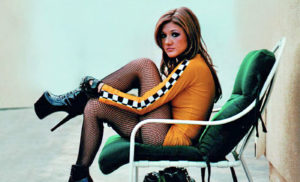“In matters of sexuality we are at present, every one of us, ill or well, nothing but hypocrites”, said Freud — a sentiment that came to mind as I watched reactions to the government’s announcement about sex education on Wednesday. Responding to criticism that existing “Relationships, sex, and health education” (RSHE) resources tend to be outsourced to dubious commercial agencies and hidden from parents, a curriculum overhaul is on the cards in English schools. Under proposed new guidelines, teachers rhapsodising about inner gender identities will henceforth be silenced, but that’s not the only welcome change. Information about the birds and the bees will be withheld to the ripe old age of nine; and “explicit discussion of sexual activity” put off until 13.
Whereas in some bastions of puritanical repression (like, say, France) these age limits would likely be met with incredulity at their laxity, here opponents have reacted as if the Education Secretary had mandated lottery-funded chastity belts for Key Stage 4. “Politicising sex education is unforgivable dangerous & reactionary …This is worst kind of arm-chair politics bigoted & ill-informed” fumed former Greens leader Caroline Lucas; nicely voicing the perennial fantasy that, whereas conservative initiatives are always highly ideological, going gender-divining with toddlers or discussing sex work with primary school pupils are actions shining with the clear unfiltered light of moral truth. Generally, most responses seemed unnecessarily outraged, talking about an imaginary version of the new guidance or else in complete denial about any existing problem. Not for the first time, I was left musing about why the modern Left is so defensive about attempts to protect tender minds from the adult marketplace of sexual ideas.
Various critical commentators wheeled out the gender zealots’ favourite analogy — “It’s like Section 28 all over again” — but didn’t mention that back in 1988, when the promotion of homosexuality in schools was first outlawed by the Tories, few of even the government’s most vocal opponents would have dreamt of insisting that primary school kids should be in the front line for detailed intelligence about what goes where. The difference, I suppose, is the internet, drastically curtailing the age of innocence relative to Eighties standards by potentially exposing much younger audiences to explicit material on a larger scale. Hence the popular protest that if kids don’t hear about it from teachers early enough, they will encounter eye-opening stuff anyway, in a much more direct and less psychologically manageable fashion.
I know that this is a canonical objection; still, I have some doubts about it. For one, the general stance it suggests — that is, relative acquiescence to the colonisation of children’s minds with incomprehensible images of writhing bodies — is a cop out. Other solutions are available; and indeed, many parents already employ internet parental controls or avoid smartphones altogether for those of primary school age. For hundreds of thousands of young children, protected at least temporarily from the excesses of the prevailing sexual culture, sacrificing their happy ignorance about grown-up matters in order to get ahead of the internet traffic for a relative few seems like a social bargain worth reexamining. It also seems possible to teach all young kids about bodily integrity and autonomy, in a way that helps safeguard them from sexual abuse, without going into the nuts and bolts, as it were — indeed the NSPCC already has one such programme.
But really, whether school sex education is successful or not — or indeed too permissive or too strict — depends on the prior question of what it is for, exactly; and I submit that nobody really knows anymore. Whereas once upon a time it was aimed at informing adolescents about basic biological facts, and then immediately persuading them not to put their newfound knowledge into practice until safely within the confines of a Christian marriage, it is now a mishmash of competing purposes and narratives.
To establish this, I went looking for an example of a complete RSHE resource currently used in an English school. Though hampered by paywalls, I did find an equivalent Scottish version freely available: described as “developed by a partnership of local authorities and health boards, with advice from Education Scotland and the Scottish Government”, it is presumably widely used north of the border. Here, as in an excavation of some ancient archaeological site used by different tribes over centuries, I found residual traces of various historically fashionable framings of sexuality, with little apparent thought about how they are supposed to cohere.
Shorn of Christian trappings, avoiding unwanted teenage pregnancy is still presented as a clear objective, along with helpful normalisation of ordinary bodily processes such as menstruation and ejaculation. But more recently acquired, less compelling cultural artefacts are also present. One of these is an emphasis on sexual pleasure: for instance, in the somewhat awkwardly named “masturbation activity plan”, recommended for 11-15 year olds. In the Nineties, liberal feminists used to get annoyed about the fact that women didn’t typically experience as many orgasms as men, treating it as an equality issue. Whether or not increasing the amount of sexual pleasure in the world is a serious political objective, it still seems jarring to encounter the ghost of this once-fashionable imperative in the context of a school lesson plan.
For instance, pupils are told that “if you masturbate, you get to know your own body and what you like” and — sounding a bit like an advertising campaign by Sport Scotland — that “masturbation is a good way to reduce stress, relax the muscles, and can often help improve sleep, mood, and self-confidence”. You don’t have to be an unreconstructed Fifties throwback to think that students might be better left on their own to discover these things; that practically nobody is seriously worried about self-pleasure making you go blind or feeble-minded anymore, so there is no need for the enthusiastic overcompensation; and that hearing such points from a teacher might be a bit weird and disturbing. Indeed, as I read this part of the text, I started thinking it might not be a coincidence that asexuality is such a big trend with the kids these days. In the arena of sex education, knowledge is not always power; sometimes it is just TMI.
Another facet of the resource I found, presumably inherited at some stage from Seventies and Eighties Second Wave feminist framings, stressed that stereotypes about masculinity and femininity should be rejected. One part of a module even had “I understand that how I look, how I behave, or my aspirations should not be limited by stereotypes, my sex or expectations of what boys and girls should do” as a learning outcome. Yet in the next topic was some very 21st century material, in which “cisgender people” were defined as those who “identify with or express themselves in line with gender expectations associated with their sex”, and transgender people were those for whom “the sex they were born does not fit with how they feel inside”. There is no satisfactory way to join up these pedagogical dots.
And there are other tensions in the documents for inquisitive minds to mull over. If consent is the be-all-and-end-all of human relations, then how does this fit with the fact that social pressures inadvertently change our sexual choices? If sex is often just harmless fun between consenting adults, then why — as the teaching resource also intimates — might it be better for young people to wait, and why are some of them reported as regretting it afterwards? If, contraceptive worries aside, choosing between vaginal and anal sex is no more fraught with complexity than choosing between ice cream flavours, why do prefer the vanilla version much more? Since adult society can barely address such questions, we should not expect those of school age to sort out the answers; but equally we should acknowledge that they are likely to be left deeply confused too.
Ultimately, though, the big problem with a lot of RSHE is that it tends to treat what is essentially a practical activity — namely, learning how to be a fully realised, happy, assertive, suitably respectful sexual being, properly tailored for the modern world and with all the emotional skills this requires — as if it was a theoretical subject like mathematics or history. It is as if we were trying to teach people to cook, only by giving them cookbooks, and then judging our degree of success by how accurately they repeat recipes back to us or describe meal plans, without letting them near a kitchen. Yet as in all “how to” subjects, you can’t really understand a set of instructions until you try to put it into practice. (Equally, nobody responsible would suggest hands-on classroom tutorials here.)
Devoid of a feedback loop with real-world experiences, for those children who have yet to hold another person’s hand let alone anything more involved, excelling at RSHE will have little relevance to how they end up behaving and feeling in the romantic wild. We can lecture them about appropriate boundaries, consent, partner satisfaction, privacy, trust, and all the rest of it, but until behaviour starts to connect with libido, it won’t mean much. Viewed in this light, anxiously micromanaging youngsters’ budding psyches to make sure they end up parroting all the right opinions looks rather more for our benefit than theirs. Perhaps, then, we might do some healthy boundary-setting of our own, and leave them to their blissful unawareness of contemporary sexual paradoxes for just that little bit longer.
Disclaimer
Some of the posts we share are controversial and we do not necessarily agree with them in the whole extend. Sometimes we agree with the content or part of it but we do not agree with the narration or language. Nevertheless we find them somehow interesting, valuable and/or informative or we share them, because we strongly believe in freedom of speech, free press and journalism. We strongly encourage you to have a critical approach to all the content, do your own research and analysis to build your own opinion.
We would be glad to have your feedback.
Source: UnHerd Read the original article here: https://unherd.com/



